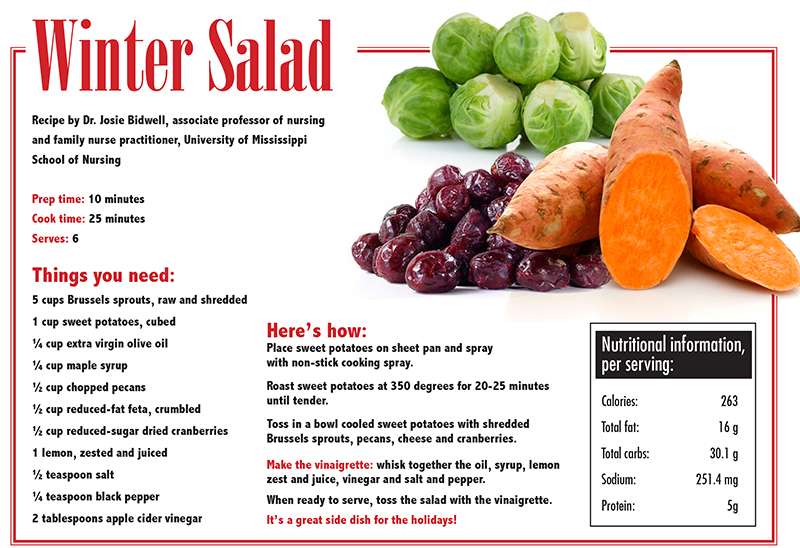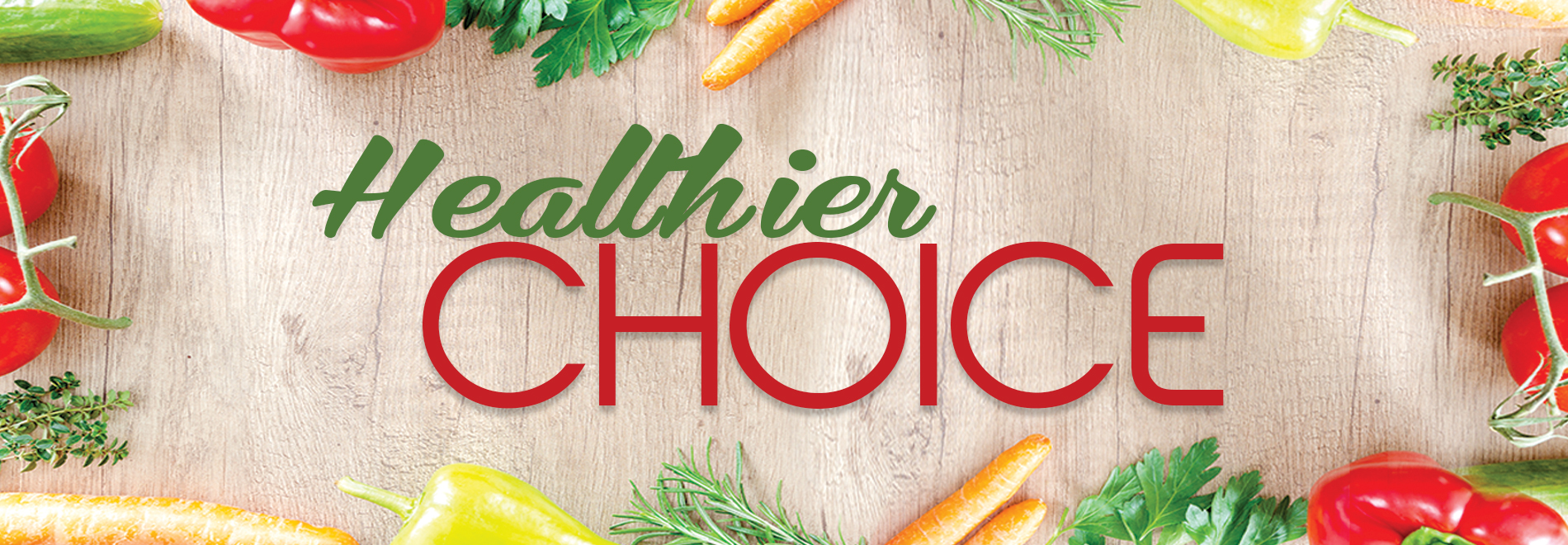How to avoid contributing to Mississippi’s nutritional challenges
Published on Friday, January 12, 2018
By: Ruth Cummins
When it comes to eating enough fresh fruits and “veggies,” Mississippians overall are doing a “berry” bad job.
The state ranks among the worst in the nation for daily consumption of vegetables, and it’s among the bottom five in the percentage of adults who eat the recommended daily amount of fruits and vegetables combined.
That’s alarming news from the Centers for Disease Control and Prevention, which cautions that a proper diet is essential to controlling chronic diseases that run rampant in Mississippi, such as Type 2 diabetes, cardiovascular disease and obesity.
According to the CDC, nationally, only 9.3 percent of adults on average eat the recommended daily amounts of vegetables, and only 12.2 percent consume the recommended fruit intake -- about half a cup of fruit and one cup of vegetables per meal, or a daily total of 1.5-2 cups of fruit and 2-3 cups of vegetables.
In Mississippi, just 8.7 percent of adults hit the fruit target, and just 6.2 percent meet the vegetable recommendation. That means plenty of people are reaching for carrot cake with cream cheese icing instead of raw carrots, and passing over a banana or crispy apple for a quick fix of potato chips.

“Some of it has to do with our regional traditions and tastes,” said Dr. Joshua Mann, professor and chair of the Department of Preventive Medicine at the University of Mississippi Medical Center. “We develop our preferences for food at an early age. We eat the way our parents eat and the way their parents taught them to eat.”
Much of the disparities reflected in the CDC’s data come down to two things: access to fresh fruits and vegetables and a desire to eat them in the first place.
In Mississippi, many urban and rural residents live in “food deserts,” areas with limited or no access to fresh foods. A lack of transportation to a full-service grocery store or simply living in a rural community that doesn’t have one can leave people without fresh produce or only with the limited selection a convenience store or discount store might offer.
Cost is also a factor. Fresh produce is more expensive than canned or frozen food. And, according to UMMC experts, more education about the benefits of fruits and vegetables is sorely needed in a state that leads the nation in obesity and heart disease rates.
“I know what I should eat, but I still have that craving for red meat and fried fish,” Mann said. “Also, a lot of what we do is habit – we fall back into eating the same things over and over again because they’re quick. It’s habit to buy the same things.”

When it comes to unhealthy eating, “a lot of the time, we assume it’s access,” said Josie Bidwell, UMMC associate professor of nursing and host of the Monday “Healthy and Fit” segment of the Southern Remedy wellness program, which airs weekdays at 11 a.m. on Mississippi Public Broadcasting. “In some cases, it is. But when you talk about the psychology behind behavior and what makes you pick healthy over less healthy, it’s so complex.”
The good news is that canned or frozen produce is still a healthy option, said Bidwell.
“Fresh is awesome, but it doesn’t have to be fresh,” she said. “Some canned food can have a lot of salt, but you can get a low sodium variety. You can drain it and rinse off some of the salt.
“A canned green bean will beat a French fry any day of the week.”
Those who have good access to fresh produce and the money to buy it often face other barriers, such as overly busy schedules, Mann said.
“You end up eating frozen dinners or fast food because you’re on the go and don’t take the time to be healthy.”
Bidwell and Mann said people often just aren’t mindful of the fact that they’re eating too few fruits and vegetables. They simply eat what’s available when they’re hungry.
“We’re not accustomed to eating that much fruit and vegetables in a daily eating pattern,” Bidwell said. “And part of it is that we don’t know how to fix them so that they will taste good.”
Vegetables don’t have to be cooked with bacon or a ham hock to be worth eating, she said.
“We want people to try things that they may not have had before, or had it one way and it was disgusting,” Bidwell said. “When you’re feeding a family on a budget, if you don’t know how to use a vegetable, it’s a tough sell if you can’t prepare it.”
Although the Mississippi Delta’s soil is conducive to growing produce, it can be hard to convince backyard gardeners and rural farmers to grow nutritionally sound and sustainable crops and to get that food to members of the community whose unhealthy diets contribute to high blood pressure, obesity, heart disease and other health issues rampant in the region.
“There has been progress in Mississippi at improving the nutritional content of food in schools,” Mann said. “That’s a big opportunity for young people.”
Other policy opportunities around the nation include giving families on government assistance incentives to shop at farmers’ markets – economic benefits that can make it easier for people to make healthier food choices.
Mann said ultimately, people are going to be more likely to eat what’s available. He suggests being purposeful in shopping to make sure the most healthy foods are readily available.
“Try to have healthy snacks available in your office so you’re not as tempted to run through the drive-through when you leave work. Eat an apple or an orange before you leave if you’re hungry.”
Bidwell said teaching people how to cook tasty vegetables and fruits at home also is key.
Think Brussels sprouts are nasty? Try this recipe.

NOTE: This article originally appeared in the January 2018 issue of CONSULT, UMMC's monthly electronic newsletter. To learn more about Medical Center news past, present and future, and to have more stories like this delivered directly to your inbox, subscribe to CONSULT.



